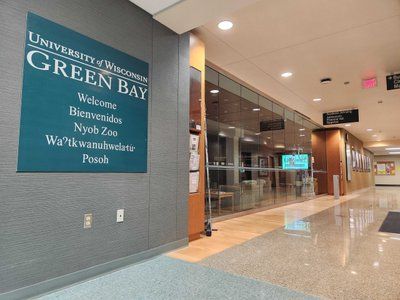John Neis is the managing director of the Madison-based venture capital fund, which has $275 million in assets under management. He spoke yesterday at a Wisconsin Technology Council event in Madison, which touched on the state’s investment landscape and Gov. Tony Evers’ budget proposal for a new $75 million VC fund of funds.
While the future of that proposal is uncertain amid the ongoing budget process, Neis discussed the state’s earlier $25 million Badger Fund of Funds program, highlighting a “structural issue” with the initiative.
“What they did with what they had I think has been extraordinary,” Neis said, referring to the recipient funds that were backed by the Badger Fund of Funds. “But it’s really small.”
He explained the average first round of VC financing for U.S. companies is around $4.9 million, while the average follow-on round is $20.5 million. That total alone accounts for the entirety of the state’s support for the Badger Fund of Funds.
Plus, he said the restrictions attached to the state dollars “made it very difficult” to see a significant impact. He pointed to a requirement that all of the matching funds for those dollars also had to be invested in Wisconsin companies.
“That’s an economic development constraint,” he said. “Investors can invest anywhere. And if they’re being asked to invest in a fund that has an economic development constraint, they’re going to be concerned that this is going to reduce my return on investment.”
He underlined the social aspect of developing investment networks, noting that in-state investment limitation has made it difficult for recipient funds to build reciprocal relationships.
“If we invite somebody into a great deal here and then they reciprocate and invite us into a great deal that they’ve got, can’t do it if it’s out of state,” he said.
Neis said that issue led to the recipient funds taking longer to raise capital, and “they also weren’t able to raise as much.” He contrasted Wisconsin’s approach to a similar initiative in Michigan that Venture Investors took part in that didn’t include such a restriction.
“By not placing those restrictions on us, we had capacity, we invested as much as $13 million in one company,” he said. “So we were a credible lead investor, we built syndicate relationships with investors from coast to coast, and we were able to attract them into our deals.”
Watch a video of the discussion here: https://wiseye.org/2023/03/28/wisconsin-tech-council-luncheon-venture-capitol-in-the-budget/
See an earlier related story: https://www.wisbusiness.com/2023/new-fund-of-funds-proposal-seen-as-strong-step-in-the-right-direction/





